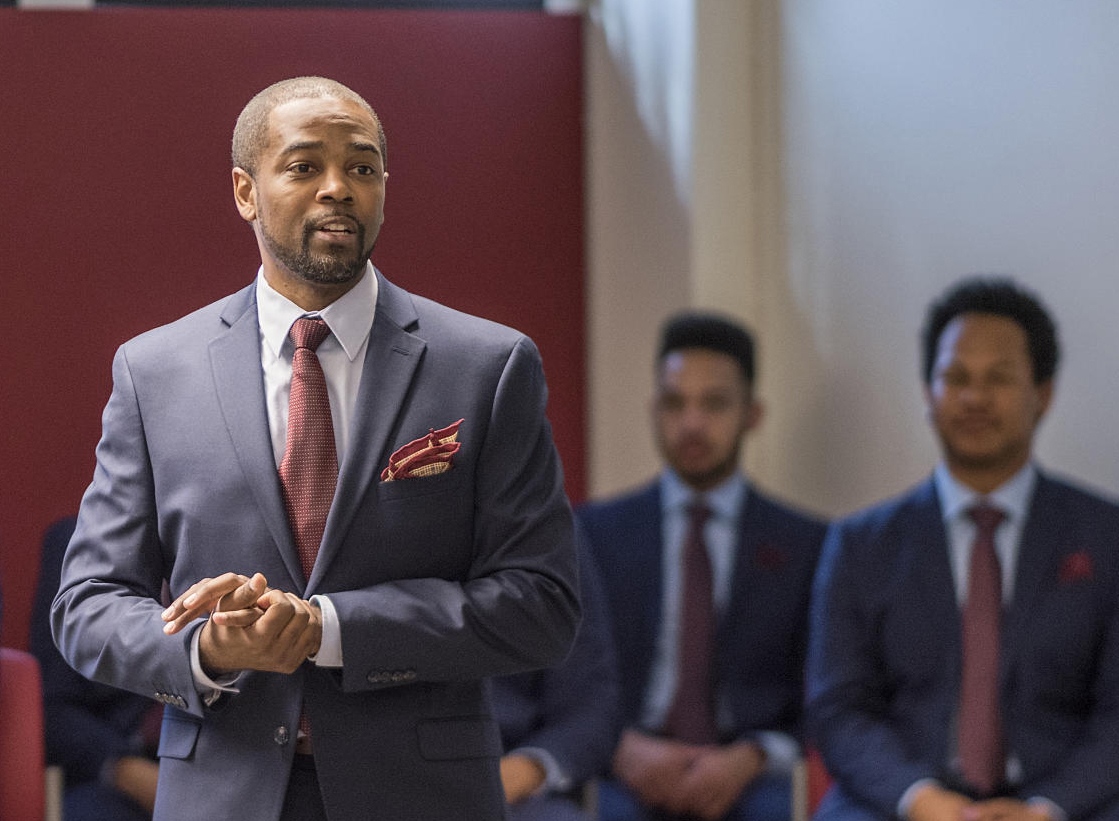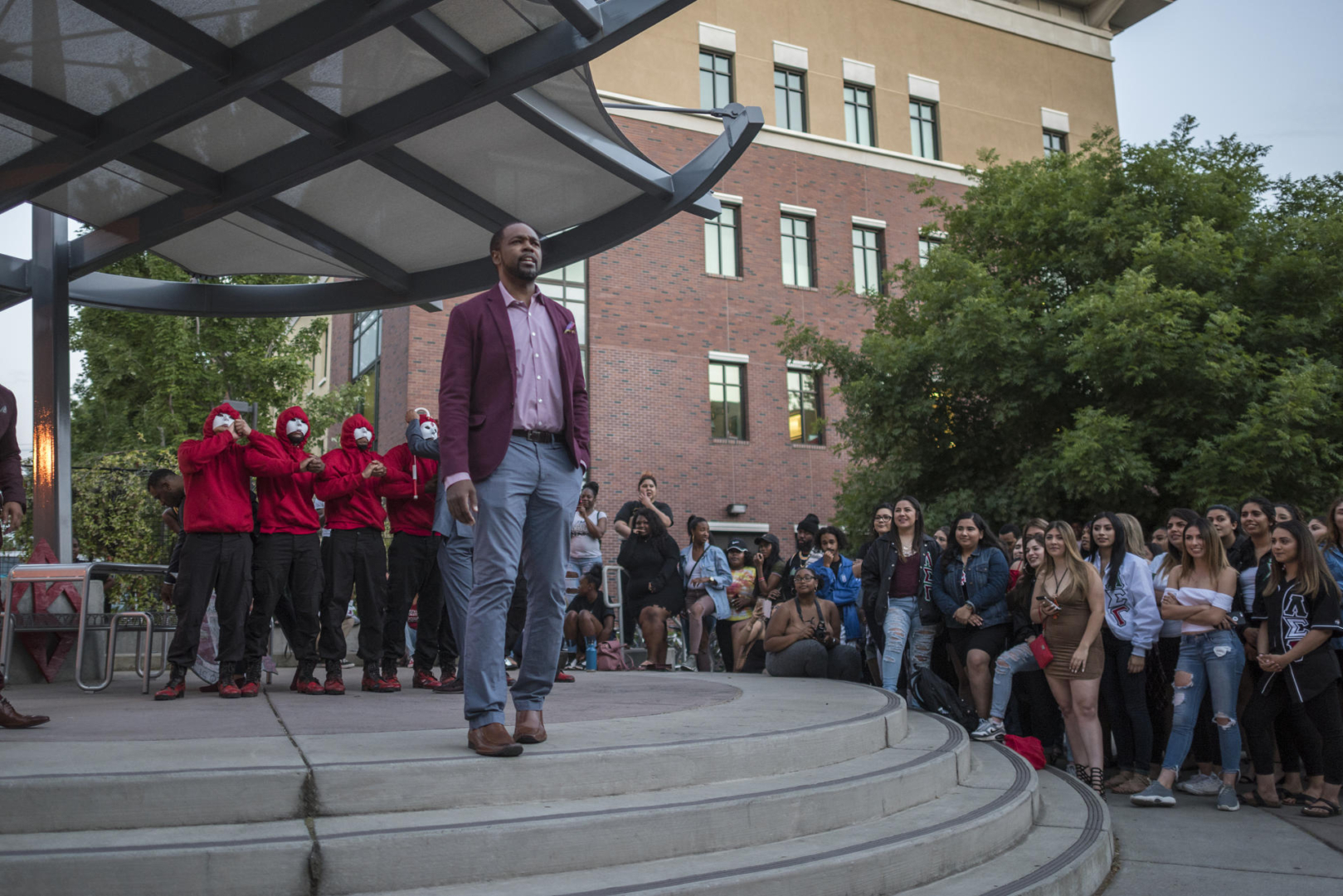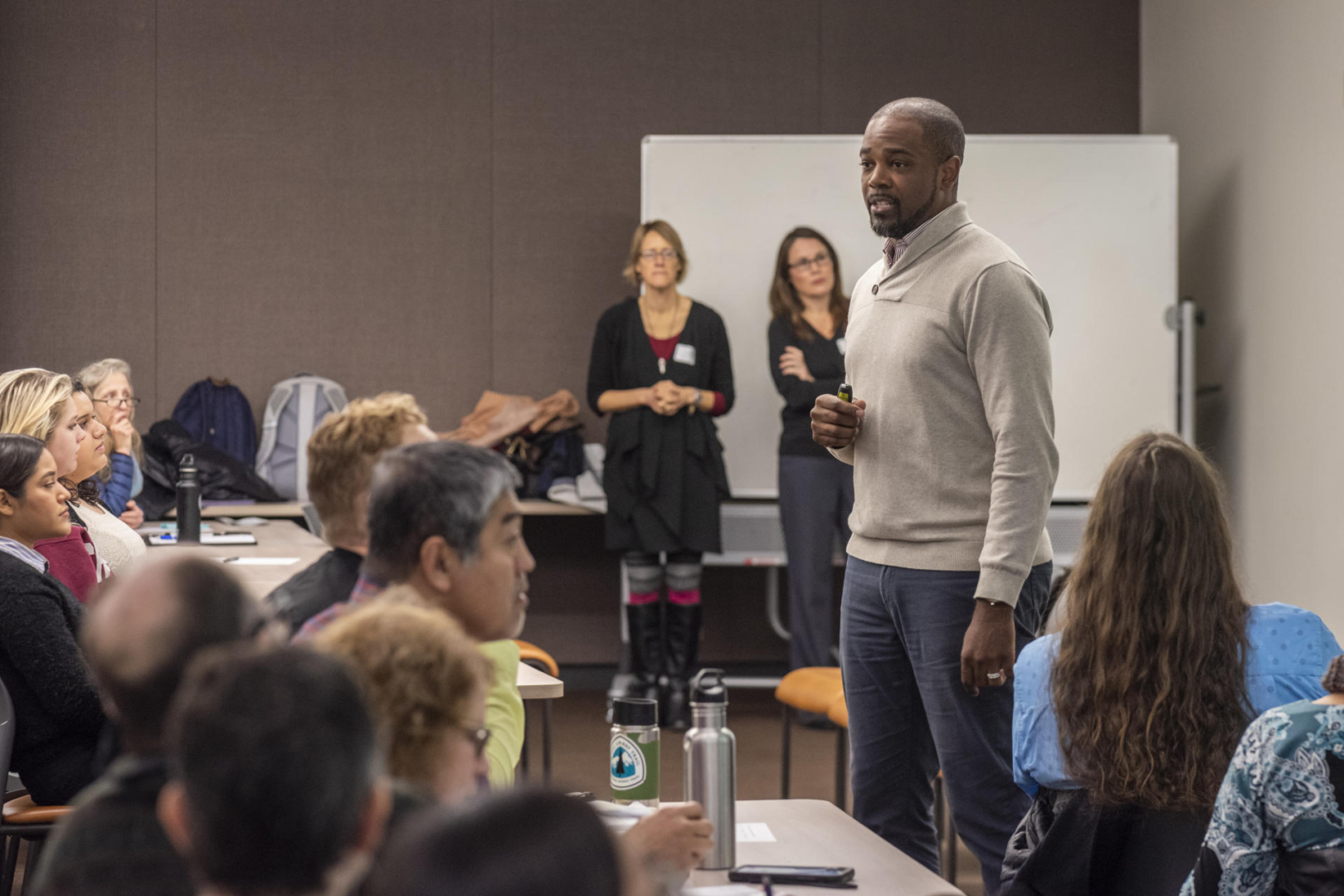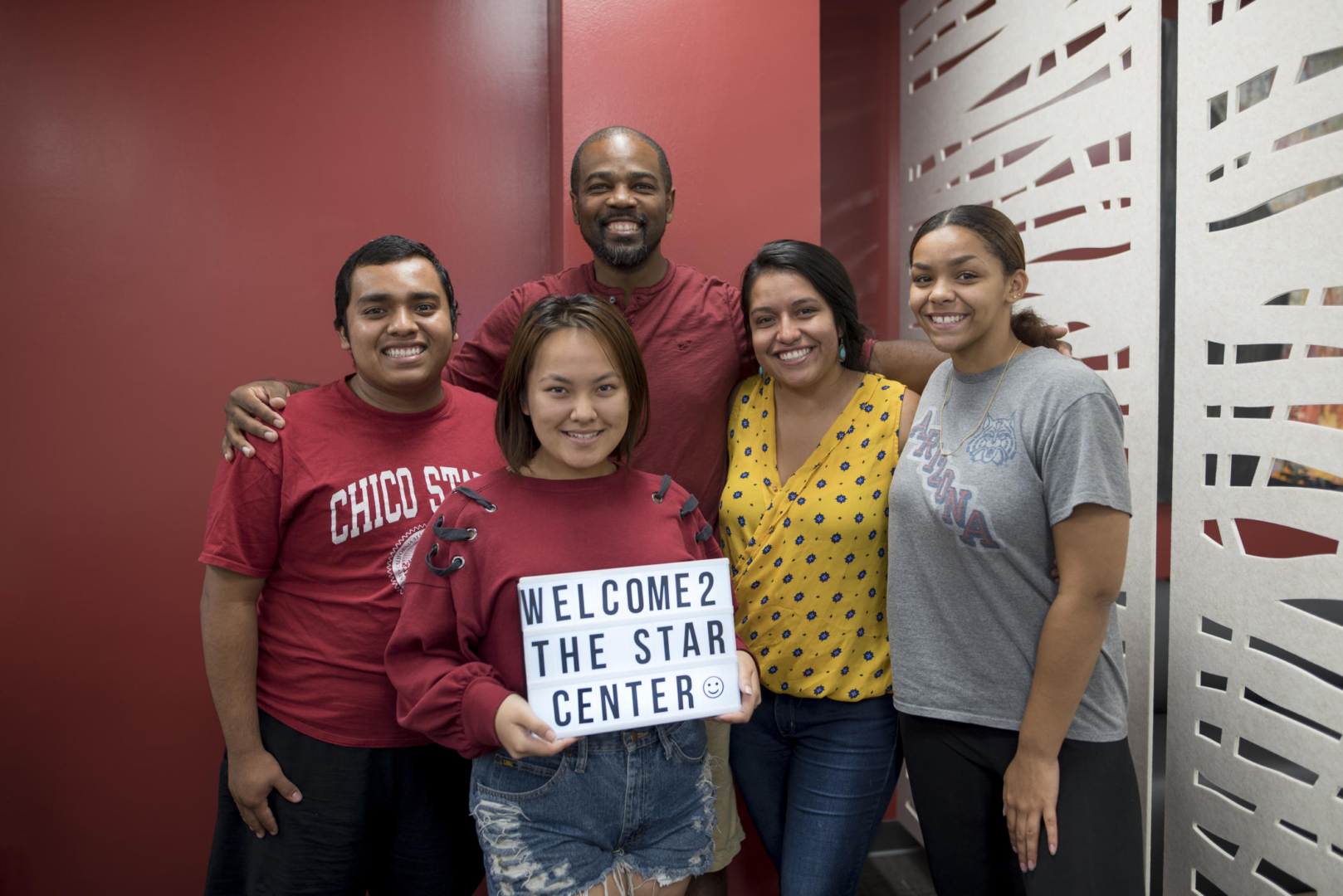Alum Leads STAR Center to Support Underserved Students

Malcolm McLemore (center) honors students during program graduation of the first cohort of Men of Color, Men of CHICO on Thursday, May 10, 2018 in Chico, Calif. (Jason Halley/University Photographer/CSU Chico)
At the end of Malcolm McLemore’s email signature, three words stand out in bold red italics: “Possibility promotes probability.”
As the interim associate director of Chico State’s Student Transition and Retention (STAR) Center—which provides academic preparation services and other resources for Chico State’s historically underserved students—McLemore wants every student who reads those three words to understand that they belong, those around them are ready to help, and to push further than they thought possible.
“When we show students what is possible, all of a sudden it opens their eyes to what’s probable for them,” said McLemore (Recreation Administration, ’08), a first-generation student himself.
As one of four brothers who grew up in a single-parent household, McLemore could easily have succumbed to the teenage trappings of free time. But his attentive mother pushed him to prioritize education.
“Growing up, my mother did her best to keep me involved in anything that kept me out of trouble or idle-minded,” he recalled. “It was because of her foresight that I was able to meet the people I did.”
From his formative years in elementary school to engaging with faculty and staff as an undergrad at Chico State, McLemore credits a number of Black educators for molding him into who he is today. Seeing people of color in positions to help, he said, was especially impactful.
“I can recall specific teachers and mentors in my life who I can now say were influential just by being present and looking like me,” McLemore said. “Visibility matters, but accessibility is what was key.”

Establishing such access is exactly what he envisioned for the STAR Center. In 2017, he and Student Affairs leadership studied a decade worth of University data exploring student metrics like grade point average and four-year graduation rate, as well as rates of retention (students who remain at the same institution for their second year) and persistence (students who return to college at any institution for their second year). The data revealed a troubling trend: First-generation and historically underserved and marginalized students were consistently falling behind.
“More specifically, Black males were at the bottom of almost every metric,” McLemore said.
The data affirmed what he had long heard anecdotally—historically underserved students lacked the attention and services to ensure their success.
“As a campus, we were able to look at where we were falling short in serving our students,” he said. “We had to ask ourselves, ‘how do we address that?’”
With McLemore leading the way, Student Affairs and Associated Students collaborated to open the STAR Center in fall 2019.
“Malcolm took our vague vision for what the STAR Center should be and developed a healthy menu of academic support programs,” said Chela Mendoza Patterson, associate vice president for student life and interim chief diversity officer. “He is constantly coming up with new ways to engage students and is really good at working with campus partners to make that happen.”

Offering services like one-on-one academic advising and discussions on class registration, semester planning and preparation, and budgeting, the STAR Center also encourages students to explore available campus resources. Located on the ground floor of Meriam Library, the center offers computers, iPads, and printers, as well whiteboards for individual or group work. Students are invited to utilize the space as a place where they feel more comfortable studying and exploring post-graduation options—whether entering the job market or further education options.
When the COVID-19 pandemic forced Chico State to move to virtual learning in March, the STAR Center shifted as many services as it could online and McLemore continues to fine-tune its offerings in order to reach as many students as possible. For example, Women of Excellence and Men of CHICO are academic retention programs that empower, guide, and support all students of color.
Additionally, once the University returns to in-person delivery, the STAR Center will bring back its faculty engagement programming, which McLemore said was one of its more successful efforts. Titled “FaculTEA,” it invited students to sit with professors over tea to discuss barriers overcome, lessons learned, and the path to higher education.
“It’s a low-risk opportunity for students to see faculty outside of the classroom,” he said. “it humanizes the experience, and it helps our students realize that our faculty are not perfect.”
Such a mentor-mentee model he believes is key to helping his students see different versions of their possible selves. And this is how McLemore—who is currently pursuing his Doctor of Education from the University of California, Davis—is showing up for his students.
For his work at the STAR Center, McLemore pulls from his experience at Chico State. As a student, he was a referee and sports supervisor with Recreation Sports, part of the moving crew for Facilities Management and Services, and a member of the student group that helped start the Cross-Cultural Leadership Center.
Upon graduation, he moved to the East Coast, where he earned his master’s degree in educational leadership from the University of Rochester in 2011. But something was calling him back to Chico State, and the next year he returned to work in Fraternity and Sorority Affairs. In 2018, he began working with Men of CHICO—before he was offered the opportunity to develop the STAR Center in 2019.
“Having a history within each of the areas has helped to shape an understanding of how each facet of campus serves our students from a different perspective,” said McLemore, who has also taught courses in multicultural and gender studies and recreation.

Anna Flores, the center’s dedicated academic advisor, sees firsthand the care and work McLemore puts into his work and the center on a daily basis. When his students understand that he was a first-generation student, that he had positive role models, and that he will continue to fight for them, they know they can trust him.
“I have seen Malcolm work with one student every single day just to ensure the student is aware of how important they are, not just to their friends but to him, to this campus, to their academics,” Flores said. “Malcolm has told me that he answers student text messages late into the evening, just so that the student knows someone cares.”
McLemore’s work, while richly rewarding, can also be strenuous emotionally. He refers to the concept of “cultural taxation,” which is the extra (and often uncompensated) work faculty and staff of color shoulder by assuming the ethnic representation on committees at higher education institutions, while also serving as unofficial diversity consultants on campus.
But so far, the result is worth the effort.
“For many of us, the shared understanding of our experiences is what endear Black faculty and staff to our students and our students to us,” he said. “That endearment can be a burdensome responsibility, but if the few of us did not exist in these spaces, the charge would go essentially unserved.”


